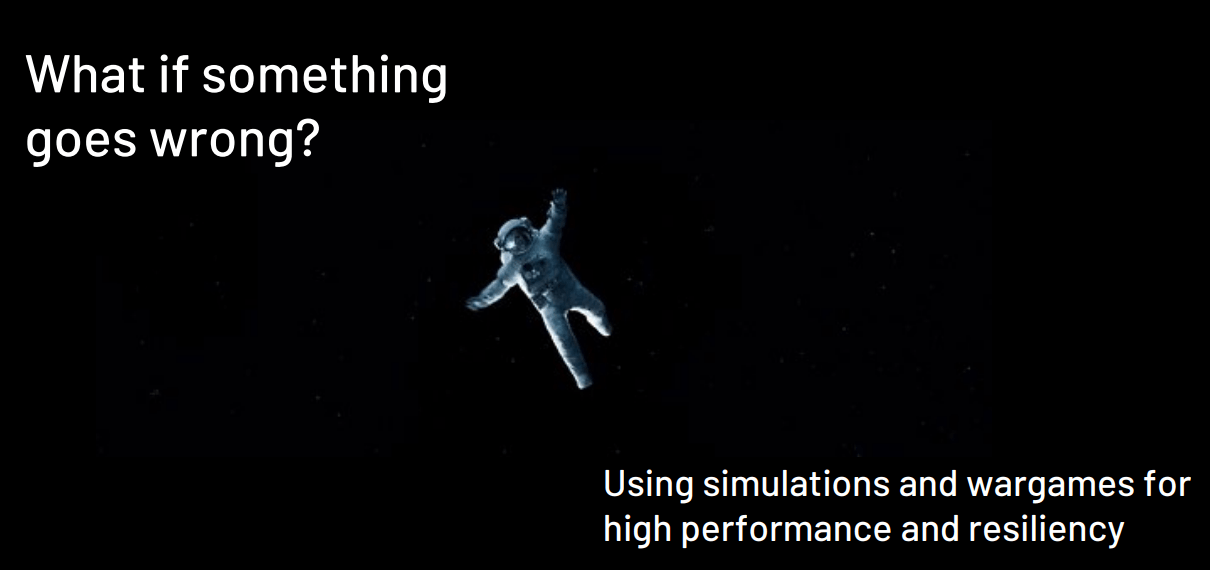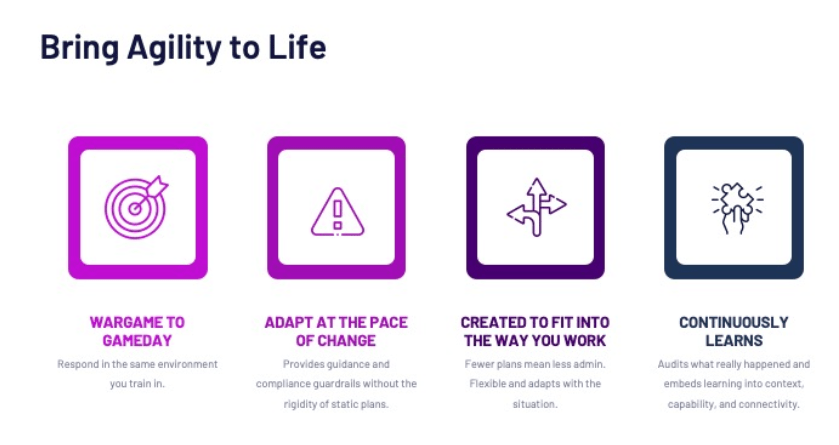In today’s fast-paced world, it is essential to have a team that can quickly adapt and respond to any disruption. As a result, effective Risk, Resilience, and Crisis leaders are becoming coaches who not only help their teams identify hidden hazards but also build their capability to engage in an agile response.
In this blog post, we will dive into the insights shared during the recent Wargaming to Gameday webinar, where Marcus Vaughan, Darryl Cross, and Andrew Owlett shared their strategies and immersive techniques for building business resilience.
With deliberate practice, we can make resilience a real thing and not just a chore.
So, let’s explore how we can leverage deliberate practice to strengthen business resilience and build a more agile and robust organization.
Understanding the Concept of Deliberate Practice
Deliberate practice refers to focused and intentional training or learning that involves breaking down blocks of training into smaller components, setting specific goals, and receiving feedback to improve performance. It involves repetition, but each time, you add a more demanding challenge into your practice. Overtime, you attain mastery in your chosen area.
The concept of deliberate practice has been utilized in many domains, from sports professionals, astronauts, and surgeons to musicians and chefs, allowing them to develop the muscle for exceptional performance.
How does deliberate practice apply to business continuity and resilience? In today’s world of constant disruptions, deliberate practice enables organizations to attain business agility, allowing them to swiftly adapt to unexpected changes. This, in turn, ensures the organization’s continuity in the face of such challenges.
Deliberate Practice through Wargaming and Simulations

Wargaming and simulation, also known as experiential learning, allow teams to learn through storytelling and immersion. Such training has been utilized by organizations like NASA and the military, with countless hours spent simulating every possible scenario for potential failures.
The parameters and rules change with each scenario to simulate a challenging environment that emulates real-life situations, ensuring individuals are fully prepared for whatever challenges they may face on gameday.
When deliberate practice is applied to building business resilience, resilience professionals transform into resilience coaches. These coaches identify the existing skills and capabilities of teams, and then design games or scenarios to elevate the level of performance and capability throughout the entire organization.
4 Components that Drive Business Resilience through Deliberate Practice

- Simulations and wargames: Make these games immersive, realistic and challenging, but not so difficult that they become unachievable. Resilience practitioners can develop and administer these themselves or use resilience platforms like iluminr, which offers a pre-built catalogue of Microsimulations – an alternative to tabletop exercises, that cover a range of scenarios, from power outages to ransomware.
- Level up the challenges: The idea is to bring everyone to a certain level of proficiency, and then raise the expectations. Do this by documenting the most common challenges, and practice them incessantly. Then make them harder. For example, get your team to practice responding to a data breach scenario to become proficient in managing communication and reputational concerns. Then introduce a ransomware attack that has crippled the organization’s network. How would the team respond without access to BCPs and action plans? This scenario could be an ‘aha’ moment, demonstrating the benefits of storing plans and response playbooks on cloud-based platforms.
- Be proactive against atrophy: Atrophy is the natural, expected diminishment of skill. Proficiency is not permanent, and the finish line is constantly moving. It’s essential to overcome atrophy by conducting regular simulations and wargames. To ensure efficiency, keep these games short (no more than 15 minutes) and intentional. Lean into the concept of deliberate practice by breaking down training into smaller, manageable components.
- Leverage available tools & resources: Use technology, teams and coaches to scale efforts. No one should be expected to improve performance on their own. Where possible, leverage all-in-one technology platforms that can deliver wargaming and simulations in a response environment. By training teams on platforms they use to wargame, resilience coaches can boost collaboration and response capability on gameday.
Technology Empowering Business Resilience in Organizations

Technology is an important force multiplier that enables resilience coaches to scale and drive results, particularly in today’s hybrid work environment. With threats evolving exponentially, resilience coaches can no longer rely on traditional approaches to high-performance coaching.
To effectively challenge teams to think ahead, coaches should leverage technology to integrate simulations and wargaming into their business-as-usual routines. By embedding technology into planning, exercises, and response procedures, teams can practice at any time and any place, ensuring high performance when responding to any threat, whether it be a data breach or natural disaster.
Additionally, resilience platforms such as iluminr offer dynamic playbooks, which are personalized and adaptive guides for gameday, that are delivered in the same familiar environment teams use to wargame. Playbooks can automatically audit all activity conducted during an event (be it simulated or real), gather insights on efficacy, and collect feedback to continuously enhance performance – to ultimately build the muscle of organizational resilience.
You can watch the full webinar here.

If you’re interested in learning how playbooks can enhance performance on gameday, check out our upcoming webinar called Bet on it: Playbooks, your teams adaptive guide to Gameday.
Author:
Michelle Doan
Director of Marketing, iluminr














